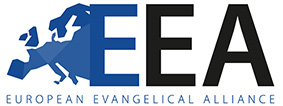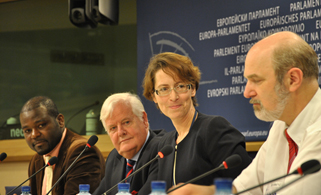By Dr. Johannes Reimer
1. Words are alike – it’s the concepts that matter
Conflicts between West and East are manifold. They are not always well-founded. And it is not unusual that semantic problems lie at the root. Although the same terms are used, they are usually filled with sometimes contradictory content. One such term is freedom, for many philosophers of our time the central concept for human coexistence today.
Whereas in the individualistic West, freedom is understood as the self-determination of the individual and the absolute freedom of choice to decide one way or another, in the East, the individual decision is usually subject to the will of the collective. The Westerner is oriented towards the will of the individual, the Easterner towards the will of the collective.
This then leads to the corresponding structural consequences for the constitution of the social order and the social, cultural and religious space. Democratic state constitution, free market economy, individual human rights, religious freedom, and much more are built on Western ideals of freedom. A high degree of social flexibility is assumed here. In contrast, clear leadership, social stability, national pride, religious determination and other things have their roots in the East. Here, tradition is more likely to prevail. Of course, neither the East nor the West can be comprehensively described according to such categories. But exceptions confirm the rule.
Both the East and the West talk about freedom, but while some focus on the freedom of the individual to shape his or her own living environment, others emphasise the responsibility of all to shape a social environment worth living in. And how do Christians in East and West look at this topic?
2. The Christian ideal of freedom or on the freedom of a Christian.
Freedom is one of the central concepts of the Christian faith. Apostle Paul writes to the believers in Galatia: “For freedom Christ has set us free, stand firm therefore, and do not submit again to a yoke of slavery.” (Gal. 5:1) Jesus Christ is celebrated as the deliverer here. For He came to set people free. And only whom He sets free is truly free (John 8:36).
But what does Jesus set free from? In the Gospel of John, Jesus Himself expresses His intention – He sets free from sin (John 8:33-35). And sin in this context stands for behaviour that misses the set target, thus violating the purpose of man and his living environment set by the Creator Himself. Sin is in principle disregarding the will of God. Consequently, man’s unrestrained self-centredness and selfishness is destructive sinful behaviour (cf. Jas. 4:1-7). Freedom in Christianity is freedom from self-determined, autonomous human behaviour that negates the will of God. Freedom in the New Testament is thus God-centred and not human-centred.
However, deliverance from the compulsion of sin is only one aspect of God’s saving act. With his deliverance, man is baptised by the Holy Spirit into a new collective, called the body of Christ, thus becoming a member of this collective, which has a very specific mission to accomplish (1 Cor. 12:13). Apostle Paul writes: “For we are his workmanship, created in Christ Jesus for good works, which God prepared beforehand, that we should walk in them.” (Eph. 2:10)
Therefore, deliverance in the context of the New Testament does not only involve an act of release from sin, but also for a new existence, a new mission. Individual deliverance is complemented by communal assignment for the purpose of God’s mission. Martin Luther summarised this understanding in his writing A Treatise on Christian Liberty: On the Freedom of a Christian (orig. Von der Freiheit eines Christenmenschen): In Christ all men are free, but this freedom is bound by love or responsibility for one’s fellow man.
3. Neither East nor West, but freedom in Christ
It can easily be noticed that both the Western ideal of freedom, which promises man a maximum of individuality and at the same time drives him into the spell of his own ego and thus potentially into those egoisms that cause all the disaster in this world (Jam. 4,1-3), and the collectivist Eastern ideal with its community-centredness stand up to the comparison with the New Testament. Both conceptions are ultimately anthropocentric, whereas the biblical conception is theocentric. Both the East and the West put man at the centre of their ideas about freedom; whereas the New Testament sees true freedom rooted in God and his mission.
Christians, whether in East or West, will resist blindly following the cultural ideal of their environment. In Christ they are a new creature and the old has passed away, the new has come (2 Cor. 5:17). As a result, they are enabled to be light in the world (Matt. 5:14-15), take responsibility for the world (Matt. 16:18) and make disciples of Jesus among the nations of this earth (Matt. 28:19-20). It is not adaptation to the respective culture and its concept of freedom that they are called for, but transformation of these cultures in the spirit of the Gospel. Such a shift has manifold consequences for the missionary everyday life of Christians in the East as well as in the West.
4. Living in the freedom of Christ – consequences for evangelical churches
Delivered by Christ to live according to his mission has consequences in both East and West. If it is not the collective, the family, the clan, the community or the state that determines the limits of freedom, but God alone, then the individual can breathe a sigh of relief and develop in every way into the image that Christ models (Eph. 4:13-15). It is not the community, nor the religious community that determines what the individual can or cannot do, but God alone.
For example, people can no longer determine what role a Jew or a Greek, a slave or a free person, a woman or a man should play in the community and in society simply because their collective culture dictates it. Christ alone holds the right to assign brothers and sisters their place in life. And in Christ “there is neither Jew nor Greek, there is neither slave nor free, there is no male and female.” (Gal. 3:28) It is not tradition, culture and community that determine the social togetherness and functional life of the community, but God alone. He determines through the Holy Spirit to whom He will assign which gifts of the Spirit, which tasks of the Lord Jesus, and whom He will place in which position in the body of Christ (1 Cor. 12:4-13).
The Christian community in the East must therefore ask about the will of God in the development of its mission and its structures and not about “what the brothers say “. Even the best brothers are not immune to fallacy. To err is human, but God is never mistaken!
In the West, however, Christians must refuse to follow their own individualistic desires, motivations and ambitions. Christian freedom is not expressed in human self-determination, but in surrender to Christ. It is not what I want as an individual, but what the Holy Spirit desires of me that is decisive. Free is no longer He who does what He wants, but who realises the will of Him who created us. And if He assigns us a place in His body, then the maximum of freedom is not to be sought in the arbitrariness of my personal choice, but in obediently following the given instruction of the Spirit of God.
Of course, such dependence puts an end to any individualism of the liberal West. But it also opens up unimagined freedom of life in the Spirit. Once you want what God wants, you can want what you want!
Orientation towards the New Testament ideal of freedom takes away from the Westerner the danger of being enslaved in the prison of one’s own ego and sets the Easterner free to live his individual vocation beyond communal determinations. And if you like, it brings the two closer together – more individuality for the East and a sense of community for the West. A journey that will be worthwhile.
Dr. Johannes Reimer is professor of Mission Studies and Intercultural Theology at the Ewersbach University of Applied Arts, Germany and director of the department of Public Engagement in the Worldwide Evangelical Alliance (WEA).












